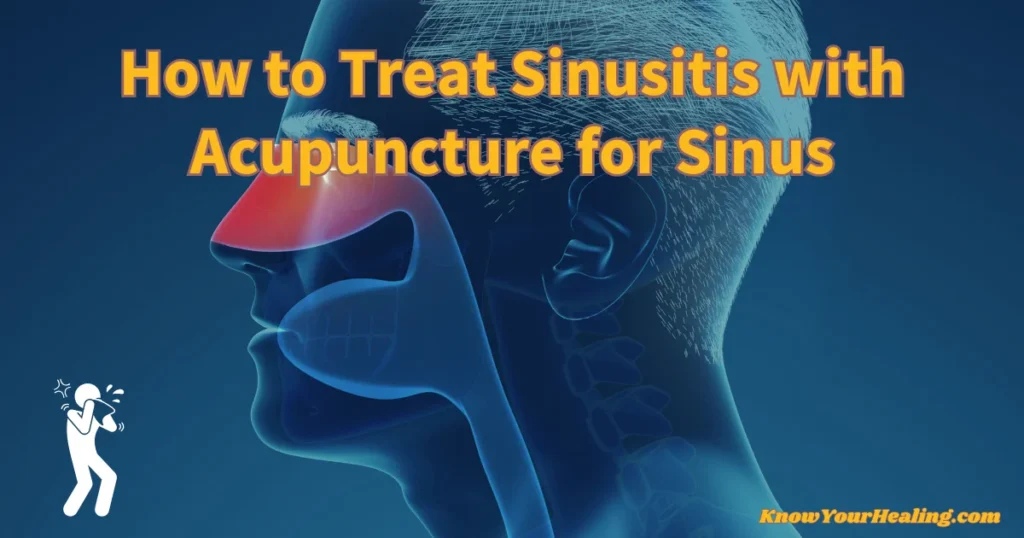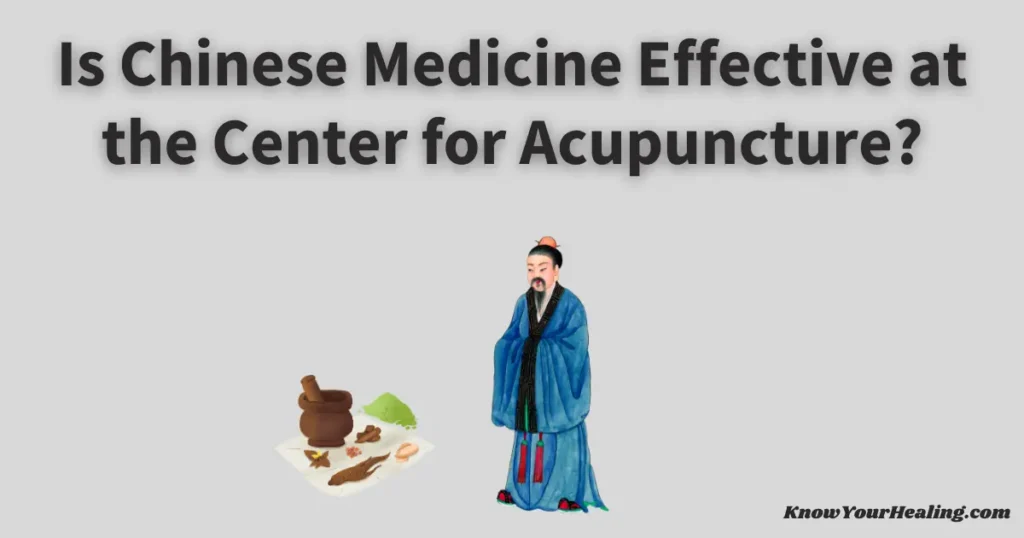Acupuncture for sinus issues is gaining attention as a natural way to alleviate long-standing discomfort.
Sinusitis, characterized by pain and pressure in the face, can disrupt daily life.
Acupuncture offers a solution by targeting specific points on the body to improve sinus drainage and reduce inflammation.
This traditional treatment involves inserting thin needles into the skin to stimulate energy flow and enhance circulation.
Research indicates that acupuncture can benefit sinus problems caused by allergies or infections.
Individuals might find relief from various sinus-related symptoms by understanding how acupuncture works.
What is Sinusitis?
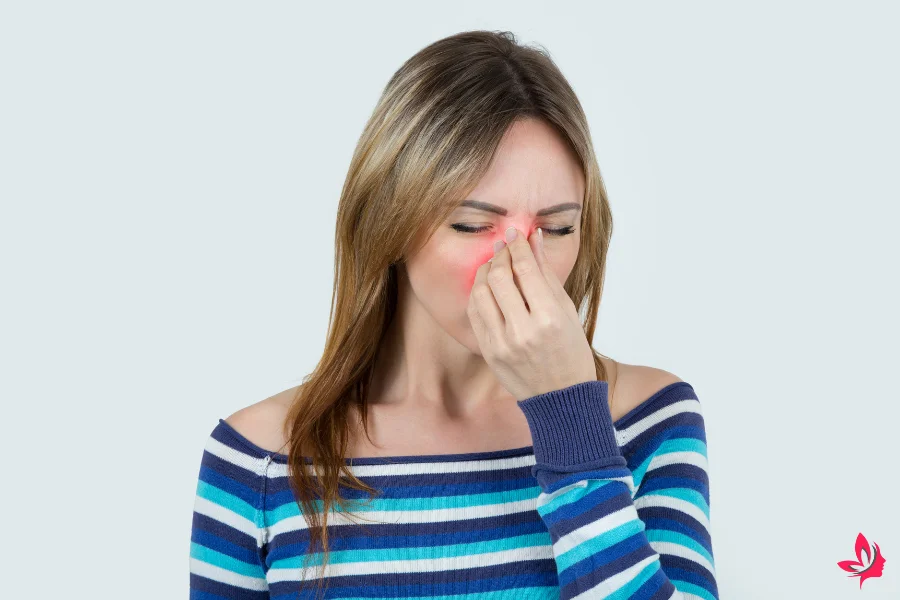
Sinusitis is the inflammation of the sinuses, which can cause pain, swelling, and difficulty breathing.
It can result from bacterial infections or allergies, leading to chronic discomfort if untreated.
Common Symptoms of Sinusitis
Sinusitis symptoms often include a stuffy nose, facial pain, and pressure around the eyes or forehead.
Many experience a runny nose, sinus congestion, and a reduced sense of smell.
Postnasal drip and bad breath may also occur, impacting daily life. In more severe cases, these symptoms can result in sinus or frontal headaches, making it difficult to focus on tasks.
Types of Sinusitis
Sinusitis can be categorized based on duration and cause.
It includes acute sinusitis, which lasts for a short period and is usually triggered by a viral infection or cold.
Chronic nasal congestion is common in chronic sinusitis, which can last months and is harder to treat.
Allergic rhinitis or allergic reactions may lead to sinus problems, while seasonal allergies can exacerbate sinus symptoms. Understanding the type of sinusitis is crucial for determining the best treatment approach.
Sinusitis and Its Causes
Different factors, including bacterial or viral infections, structural issues, or nasal polyps, can cause sinusitis.
Allergies and irritants like smoke or pollution can also result in nasal inflammation.
Blockage in the nasal passages can trap mucus, leading to infection.
Weakness in the immune system can make individuals more susceptible to sinus infections. Identifying these causes can facilitate effective treatment through conventional methods or alternative medicine like acupuncture.
The Role of Acupuncture in Sinusitis Treatment

Acupuncture for sinuses is gaining popularity for its potential to relieve sinus problems and improve sinusitis symptoms.
Targeting specific points in the body aims to enhance the body’s natural healing abilities and alleviate symptoms such as sinus pressure and congestion.
How Acupuncture for Sinus Works
Acupuncture involves using thin needles inserted into specific acupuncture points on the body to regulate the flow of qi, which is considered vital energy in traditional Chinese medicine.
The practice seeks to balance the energy flow and reduce nasal inflammation.
Specific points on the face, LI20 (at the base of the nose), and BL2 (between the nose and inner eyelid) help relieve nasal symptoms and enhance the immune response to sinus ailments. This can provide relief from intermittent sinus infections and chronic nasal congestion.
Benefits of Acupuncture for Sinusitis
One of the main benefits of acupuncture for sinusitis is the reduction of typical symptoms, such as facial pain and a runny nose.
This approach can significantly improve sinus pressure and congestion by promoting better circulation and reducing inflammation in the nasal cavities.
Unlike some conventional treatments, acupuncture offers a holistic approach that may carry fewer side effects.
It is often considered a complementary therapy alongside Western medicine and nasal sprays.
Acupuncture Treatment Process
The process usually starts with a detailed consultation to understand the patient’s sinus symptoms and health problems.
A practitioner identifies the target areas and explains the acupuncture session during the first session.
Practitioners then insert needles into specific points on the body, often including areas near the nose and forehead.
Treatment frequency and duration vary depending on the severity of sinus conditions.
In some cases, combining acupuncture and traditional treatments like nasal irrigation may provide the best treatment results for sinus issues.
Comparing Acupuncture with Conventional Treatments
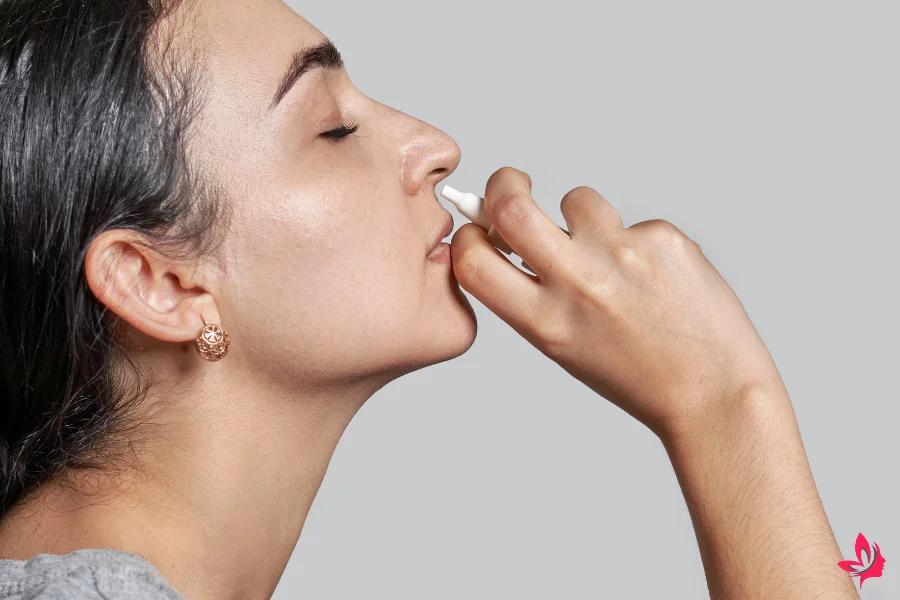
Both acupuncture and conventional treatments offer promising results for sinusitis. Each method has unique approaches for easing common symptoms like sinus congestion, pain, and pressure.
This section outlines what patients might expect when choosing between acupuncture and traditional medical options.
Acupuncture vs. Western Medicine
Acupuncture involves placing thin needles at specific points on the face, LI20 and BL2, to improve the flow of qi and address sinus issues and pain.
It is grounded in traditional Chinese medicine and aims to balance energy within the body to alleviate congestion and facial pain.
According to this article, acupuncture is effective for nasal passages, primarily when sinus symptoms stem from allergies or viral infections.
Western medicine typically treats sinus infections with antibiotics and nasal sprays, which target bacterial infections and inflammation.
While these treatments can provide quick relief, they may also lead to side effects or resistance over time.
Alternative Therapies for Sinusitis
Alternative therapies, such as acupuncture, offer a holistic approach by combining techniques like herbal medicine and massage therapy.
These methods emphasize aligning the body’s energy, improving immune response, and reducing pressure in the sinus cavities.
Specific acupuncture points help decrease sinus symptoms over several sessions, though more research is needed to validate the long-term benefits.
Other complementary practices, like nasal irrigation with neti pots, also help clear nasal passages by flushing out irritants and providing relief from acute sinusitis.
These methods can be beneficial when used alongside acupuncture for comprehensive care of sinus problems.
Conventional Treatments for Sinusitis
Conventional treatments focus on medications and medical interventions.
Nasal sprays and decongestants aim to ease sinus congestion and improve breathing.
Antibiotics are often prescribed for bacterial infections; overuse can lead to concerns like antibiotic resistance.
Patients with chronic sinus pain might be advised to undergo more invasive procedures, such as surgery, to address nasal polyps or severe cases where other treatments fall short.
Although effective, these treatments prioritize symptom management over addressing underlying causes.
Acupuncture Sessions and Techniques
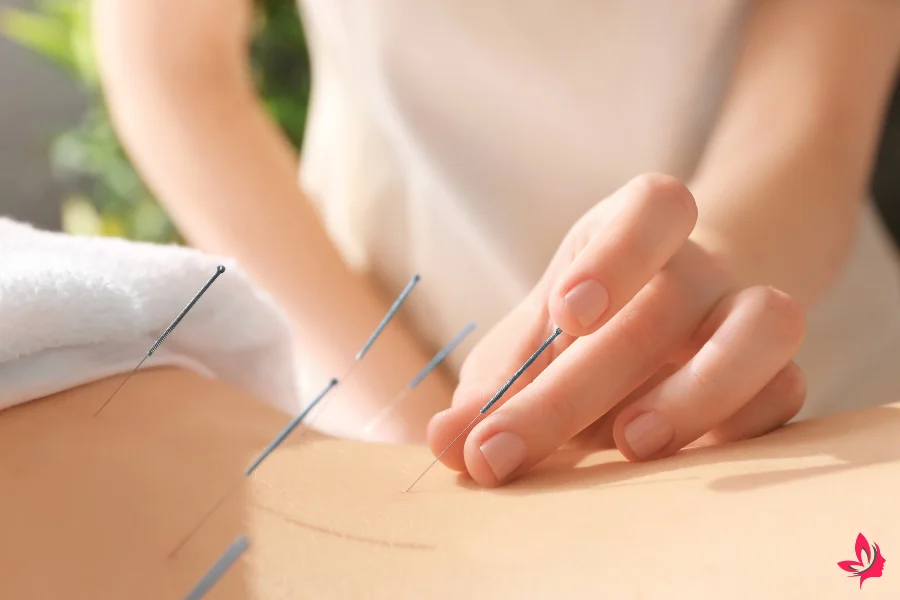
Acupuncture for sinus issues involves techniques to alleviate symptoms like sinus congestion and facial pain. Understanding what to expect from these sessions can help maximize their benefits.
Preparing for an Acupuncture Session
Before attending an acupuncture session, patients should ensure they are well-prepared.
They might want to wear comfortable clothing and avoid heavy meals beforehand.
It’s helpful to communicate any specific symptoms, such as a runny nose or sinus headaches, to the acupuncturist.
Bringing a list of current medications or treatments can also help tailor the session to individual needs. An open-minded approach to this alternative therapy is beneficial.
Acupuncture Techniques for Sinusitis
Acupuncture treatment for sinusitis targets specific acupuncture points on the body.
The acupuncturist stimulates these points with thin needles, which can influence the flow of qi and improve nasal passages.
Traditional Chinese medicine believes this can reduce sinus pressure and congestion.
Clinical studies show that acupuncture can significantly improve the relief of symptoms like nasal inflammation, enhance the sense of smell, and reduce chronic sinus pain.
Techniques may vary based on individual symptoms and the type of sinusitis experienced.
Post-Acupuncture Care
After an acupuncture session, following certain care practices to maximize benefits is important.
Patients are encouraged to drink plenty of water to help the body flush out toxins.
Resting and avoiding strenuous activities can also contribute to the recovery process.
Some may experience slight bruising or tenderness at needle sites, which generally subsides quickly.
Those experiencing unusual nasal symptoms or lingering discomfort should discuss this with their acupuncturist during follow-up sessions.
Regular treatments can maintain relief from sinus conditions, enhancing the quality of life.
Enhancing Quality of Life with Acupuncture
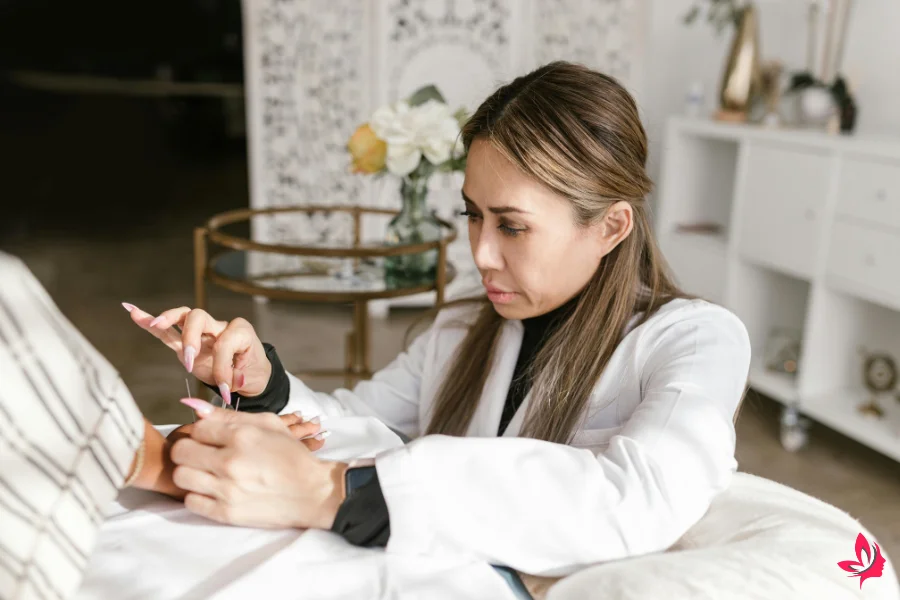
Acupuncture for sinus problems can be a key component in managing them, leading to a better daily life. This practice helps relieve sinus congestion and boosts the body’s immune response against sinus infections.
Long-term Benefits of Acupuncture
Acupuncture is recognized as an effective method for managing long-term sinus conditions.
Targeting specific acupuncture points helps alleviate sinus symptoms such as sinus headaches and facial pain.
This treatment can encourage significant improvement in chronic nasal congestion; regular sessions may lead to fewer sinus infections.
The effects of acupuncture are cumulative.
Continued treatment can help maintain clear nasal cavities and reduce nasal inflammation, thus improving overall quality of life.
Patients often notice reduced dependency on nasal sprays and other conventional treatments over time.
Acupuncture and Immune System
Acupuncture can significantly enhance the immune system’s ability to fight sinus infections.
By stimulating particular points in the body, acupuncture helps balance the flow of qi.
This balance can improve immune response, making the body more effective at combating sinus conditions.
The practice harmonizes the nervous system, providing a holistic approach to sinus problems.
As a complementary treatment to Western medicine, acupuncture supports integrative health, making the body less hospitable to bacterial infections, which are common symptoms of sinusitis.
Lifestyle Changes and Acupuncture
Incorporating lifestyle changes and acupuncture can yield the best results for sinus issues.
Combining acupuncture treatment with practices like using a neti pot or adopting Chinese herbs can assist in maintaining clear nasal passages.
Simple changes like dietary modifications can enhance the body’s resistance to sinus infections.
Regular physical activity and stress-reduction techniques can also support the benefits of acupuncture.
These combined efforts help sustain a healthy immune system and inform family members about better care strategies for sinus issues.
Frequently Asked Questions
Acupuncture can be a valuable treatment option for sinus issues. This section addresses common questions about how acupuncture can help with sinus problems and related therapies.
Below, find information on specific acupuncture points, additional remedies, and natural methods for relief.
Is acupuncture good for sinus problems?
Acupuncture has been shown to help with sinus issues. It reduces inflammation and improves sinus drainage. It can offer relief from congestion and pressure due to allergies or infections. Studies suggest it can be effective for both acute and chronic sinusitis.
What acupuncture point clears sinuses?
The sphenopalatine ganglion is a key acupuncture point for clearing sinuses. Targeting this area can help relieve pressure and congestion. Acupuncturists often use this point to address sinus issues and enhance breathing.
What is the best treatment for blocked sinuses?
Other treatments, such as steam inhalation, nasal saline irrigation, and over-the-counter decongestants, can help unblock sinuses. However, acupuncture is an effective addition to these treatments for some due to its natural approach and minimal side effects.
What is the Chinese remedy for sinus pressure?
In traditional Chinese medicine, herbs such as magnolia flower and xanthium alleviate sinus pressure. These are often combined with acupuncture to enhance effectiveness and provide relief.
Where to press to drain sinuses?
Pressing on the area above the bridge of the nose and either side of the nostrils can help drain sinuses. Applying gentle pressure in these areas can encourage fluid movement and reduce congestion.
How can I heal my sinuses naturally?
Natural healing methods include staying hydrated, using a humidifier, and employing aromatherapy with eucalyptus or peppermint oils. Regular acupuncture sessions can also support these natural approaches by promoting sinus health.
Is there a permanent treatment for sinusitis?
There is no guaranteed permanent cure for sinusitis, as it depends on the underlying cause. However, maintaining overall nasal health through diet, lifestyle, and therapies like acupuncture can manage symptoms effectively in the long term.
What positions drain sinuses?
Lying on your side with your head slightly elevated can facilitate sinus drainage. A foam wedge or extra pillow can help maintain this position comfortably, reducing nighttime congestion.
Can acupuncture help with mucus?
Acupuncture can help reduce mucus production by addressing the root causes, such as allergies or inflammation. It works by balancing the body’s energy flow, which can decrease mucus buildup.
Can acupuncture help rhinitis?
Acupuncture is effective for allergic rhinitis. It targets inflammation and boosts the immune system. It can reduce symptoms such as sneezing, runny nose, and nasal congestion, providing relief without the side effects of medication.

